Home / Labor Law / Vacation
Back
Published: 05/22/2016
Reading time: 8 min
0
6063
It is a rare person who can boast of absolute health; Not only workers, but also their relatives get sick.
In cases where an employee needs to take care of a sick relative, he can issue a sick leave certificate. At the same time, the receipt (or non-receipt) of social compensation depends on the correctness of its registration.
- Legislation
- Conditions for taking this type of vacation
- When can leave be denied?
- Vacation period
- How to apply correctly?
- Payment
Caring for an elderly person: general rules
With age, immunity, hearing and vision deteriorate, mental health problems may arise: memory loss, mood swings, depression, etc. An elderly person with poor health needs a comfortable and healthy environment, regular and competent care. He needs to create suitable medical, social and living conditions.
- Comprehensively strengthen the immune system. Proper nutrition, exercise, procedures, and medical examinations are needed.
- Communicate kindly. Friendliness, sincerity, kindness, caring, assistance, calling by name - every elderly person needs this.
- Relatives need to regularly communicate with the elderly so that he feels needed and loved. Old people often suffer from loneliness, they have a bad mood, a feeling of isolation and depression.
- Be sensitive to age differences. A person may have problems with memory, he begins to hear poorly, and his behavior changes for the worse. You need to learn to perceive this as a consequence of age and behave correctly in such situations.
- Support the interests of the elderly: bring him books by his favorite authors, newspapers, go with him to the theater and exhibitions.
- Create suitable living conditions. A person needs comfortable housing with a safe environment, comfort and silence for relaxation. It is important to consider that in old age, many suffer from mental disorders, due to which they become disoriented in space and distort their perception of the environment. Because of this, they can harm themselves even at home, for example, taking the wrong pills or leaving the gas open. It is important to take into account all potentially dangerous moments and eliminate them.
- Eat properly. A balanced combination of carbohydrates, fats, salt. Vegetables and fruits, meat, fish, compotes, juices, and drinking plenty of fluids are useful. A Mediterranean diet or a diet prescribed individually by a specialist is recommended.
- Maintain personal hygiene. In old age, people can become sloppy and indifferent to their appearance. If a person has difficulty maintaining hygiene, he needs help and supervision so that he can relearn how to regularly take care of himself.
Problems with the urinary organs
Prolonged horizontal position may lead to changes in the urinary system. In a horizontal position, urine lingers longer in the pelvis, which contributes to the occurrence of an infectious process, and then the formation of kidney stones. Prolonged “duvet” warmth makes a person vulnerable to cool air; this can affect any organs and systems, including the kidneys. And inflammation can contribute to the formation of salts, and then sand and stones. Using a bedpan and/or a duck, seeking help for physiological functions and an uncomfortable position, all this creates discomfort, leads to irritability, depression, and such conditions only accelerate the onset of problems. The most serious problem, of course, is the formation of kidney stones, and this is not the only problem. Over time, the patient may experience urinary incontinence, which, in turn, leads to skin problems, as well as the appearance or intensification of depression, because. unexpected urination in bed, for a conscious person, is a big problem, stress that is difficult to experience. You must also remember that it is harder to hold urine in a horizontal position than in a vertical position. Urinary incontinence, which we are talking about now, as a rule, is not functional, but is associated only with physical and psychological inconvenience, as well as with the sluggishness or lack of staff. There is such a thing as “the psychology of expectation.” You can often hear that if a person is ill, and even elderly, then expect urinary incontinence. This psychology is not justified in any way, and its sad fruits are such that caring staff waste precious time waiting for incontinence, instead of actively carrying out prevention.
Compliance with the regime and schedule

By following a daily routine, an elderly person maintains control over his life and maintains a healthy state. You need to get up and go to bed at the same time, take medications at certain hours, and eat on a schedule. This will strengthen internal biorhythms and support the healthy functioning of the digestive tract.
It is important to listen to your inner state: engage in vigorous activity during hours of vigor and energy, rest when you are tired, and never overwork. In any case, the elderly need rest in the middle of the day. It is important to adhere to a constant rhythm of life and maintain it for many years.
It is useful to introduce daily rituals. Start the morning with light exercises, a shower and a hearty healthy breakfast. Before going to bed, relax in a suitable way: drink a cup of soothing tea, take a foot bath, listen to pleasant music, ventilate the room at night, etc. Regular repetition of simple and useful actions will contribute to good health.
You need to go for a walk every day. If this is not possible, ventilate the home well twice a day.
Nutrition rules
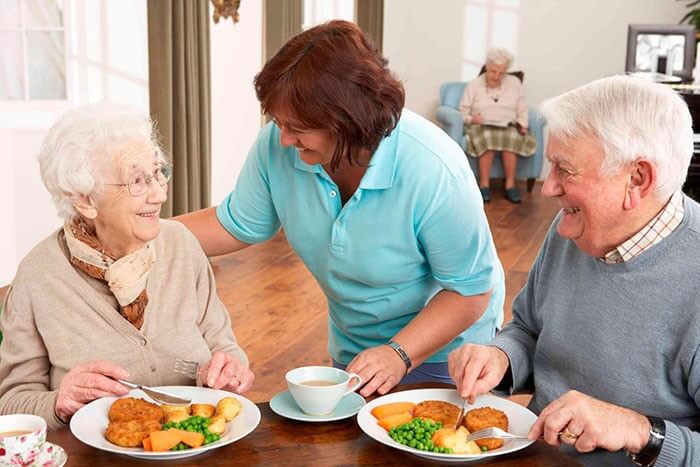
In addition to healthy recommendations, you need to take age into account. Some older people are prone to extremes: they either overeat or eat very little. When compiling a diet, you need to take into account the energy value of foods and the pensioner’s expenses during the day: they must correspond to each other.
- The diet should be varied so that the content of proteins, fats and carbohydrates is balanced.
- The energy value of the daily diet is distributed as follows: first breakfast - 25%, second breakfast - 15%, lunch - 35%, dinner - 25%.
- Food for the elderly should be well digested.
- If necessary, a vegetable, cottage cheese or kefir diet is recommended as prescribed by a doctor.
- Food must contain useful microelements, vitamins, and substances. For example, calcium will strengthen weak bones, vitamin C will strengthen the immune system, and anti-sclerotic substances will prevent sclerosis. Both general healthy recommendations for older people and individual nutritional advice should be taken into account.
- You can't go hungry.
- In the evenings it is useful to eat light fermented milk products, vegetables and fruits.
- Include vitamin and mineral complexes in your diet.
- Take medications into account when organizing meals.
Hygiene for the elderly

Older people's skin becomes thinner and drier, so they don't like to wash often. Washing with a washcloth can cause soreness to the skin. Therefore, for body hygiene you need to choose soft products: baby soap, neutral shampoo, a soft washcloth and a towel.
- If possible, choose a shower and skip the bath. For daily washing, it is better to use a gel with a neutral pH, and wash without a washcloth. Every day you need to thoroughly clean the skin folds, bends of the limbs and genitals. The rest of the body can be washed with plain water.
- Wash with warm water, not cold or hot.
- For convenience, lay a rubber mat in the bathtub, and place handrails and special handles on the sides.
- After washing, lubricate the skin with moisturizer.
- For urinary incontinence and for bedridden elderly people, use urological pads, special diapers, and diapers.
- To avoid itching in the perineum and anus, wash yourself after using the toilet and wear underwear made from natural materials.
- Apply deodorants to clean and dry skin.
- To get rid of the old smell, ventilate the apartment and use light aromatic essences.
How to take care of your eyes, ears and nose
Cleansing the eyes, ears and nose should be done twice a week.
- Eye care.
Soak cotton swabs in furatsilin solution. Ask the person to tilt their head back. Rub your eyes from the outer corners to the inner ones. Remove any remaining substance using a dry cloth in the same direction. - Ear care.
Wash your hands, moisten cotton wool with peroxide solution (3%), squeeze. With your left hand, pull back the auricle, and with your right hand, insert a cotton wool into the ear canal. Using rotations, clean the ear from accumulated wax, wipe the ear with a napkin or towel. When cleaning your ears, do not use matches or probes. - Nose care.
You will need four turundas, two of which are soaked in 3% peroxide. Screw the cotton wool with the solution into the nostril clockwise. After cleansing, wipe the nostril in the same way with a dry turunda.
Psychological care
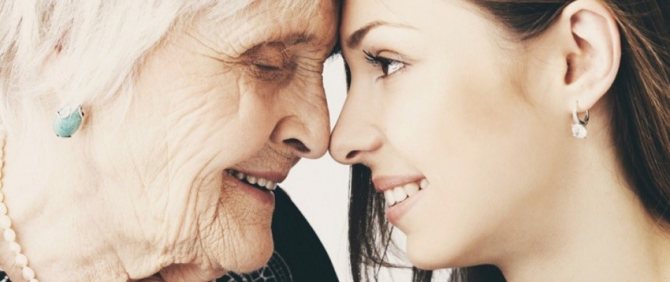
Mental comfort is especially important for the elderly. It is useful for loved ones to know the following:
- Provide the person with attention, care, a sense of stability, and help in solving difficulties.
- An elderly person needs sensitivity, patience, understanding and attention.
- He probably has accumulated a lot of pleasant memories throughout his life. Help him remember them: look through a family album together, watch old films, listen to the music of his youth, etc. If a person has relatives and friends, help them connect, establish communication and meetings.
- A common problem for 80-year-olds is the loss of purpose in life. It seems like everything is left behind. Those who have good memory and thought processes cope with this easier. The task of loved ones is to help a person find meaning and happiness in his current years. One must listen patiently to the stories that a person tells, even if it is repeated many times. You need to look for a personal approach to him, set him up for communication with loved ones, ask him not to give up his previous interests. Maintaining relationships with the outside world, interesting activities, communicating with friends, etc. will distract the ward from sad thoughts.
Character traits in old age and behavior of loved ones
- Try not to criticize or argue unnecessarily.
- Pay attention to complaints related to health status.
- Listen to the client until the end.
- During times of distress, treat the old man like a child. Ask him to tell him what upset him, to help him cope with it.
- Do not laugh at the worries and fears of the elderly.
- Treat with respect, be patient and calm.
- Don't force someone to do something if they don't want to.
- Praise.
- Allow them to have their secrets.
- If necessary, contact a psychologist.
| Feature of the Elderly | How to behave to loved ones |
| Inattention | Speak in short phrases, repeat |
| Fear | Remain calm and reassure the client |
| Mood swings, irritability, tearfulness, anger | Maintain an even emotional state, do not aggravate the situation, do not argue |
| Closedness | Start communication yourself and engage in conversation |
| Inappropriate and delusional phrases, beliefs | Do not argue or persuade, calmly transfer to another topic |
| Diffidence | Treat with understanding |
| Emotional coldness, lack of | Treat it like a symptom of a disease |
How to help yourself
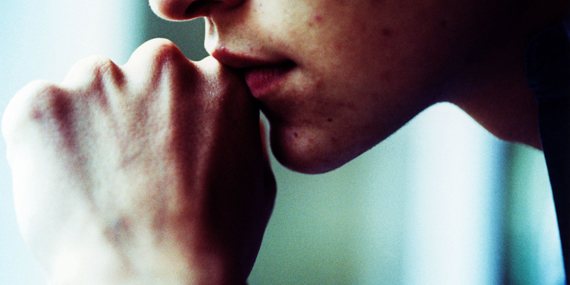
Photo from netdoctor.co.uk
When melancholy has eaten into the heart, a person only thinks that he can escape from it by doing everyday things. There is no need to explain that psychological, mental fatigue is completely different from physical fatigue, and it will not disappear, no matter how much you hide from it in everyday worries or proud heroism.
You cannot escape your nature and temperament. But you can help yourself. For example, darkness and silence will help someone relieve mental and emotional fatigue: lie down in bed, turn off the light, cover your head with a blanket and lie there for a while.
For some, water helps relieve fatigue: take a shower, go to the pool, swim, or just lie in the bath. Wash your hair.
Personally, the sacrament helps me the most. If a person believes in God, then I would advise first of all to find a priest-confessor. I have already said above how conversations and communication are a great emotional help. A sensitive priest can discern and bring out that hidden problem that sits deep in a person and which the person hides from himself.
Find a congenial priest, not just one who serves near your home. It should be comfortable to share your experiences and doubts with him.
Payment of elderly care benefits
In accordance with the legislation of the Russian Federation, compensation for caring for the elderly is prescribed to able-bodied non-working persons who care for disabled people of group I, the elderly who need care, people who have reached 80 years of age, and disabled children under 18 years of age.
An assistant caring for an elderly person over 80 years old is entitled to a monthly compensation of 1,200 rubles. Also, in different regions of the country, a regional coefficient is added to it. For the Tyumen region, Yuzhno-Sakhalinsk, Nenets Autonomous Okrug it is 1.6, for the Far North – 1.8. The money is transferred to the pensioner along with his pension; after receiving, he transfers it to his assistant
Detailed information on caring for single disabled people can be obtained from the Pension Fund of the Russian Federation.
Leave mechanism
The Labor Code indicates that an employee can receive care leave, but the salary will not be maintained, and the duration of such leave is negotiated with the employer. It is provided on the basis of a written application. It is the employer's responsibility to provide leave if the employee falls into the following categories:
- A working disabled person, but the term is limited to 60 calendar days during the year.
- Participants of the Great Patriotic War - 35 days.
- For employees upon the death of close relatives, registration of relationships, or the birth of a child - no more than 5 days.
- Working old age pensioners -14 days.
- Wives, husbands, parents of military personnel who died due to shell shock, injury during the performance of official duties or illness due to military service - up to 14 days.
- There are some other categories as well.
Recommendations for caregivers
Caring for elderly people has a difficult time: it is daily, sometimes difficult and routine work. Over time, psychological discomfort arises: the helper gets tired, the elderly person becomes attached to him and becomes dependent. Everyone feels bad. To prevent such a development of events, they need to be warned from the very beginning.
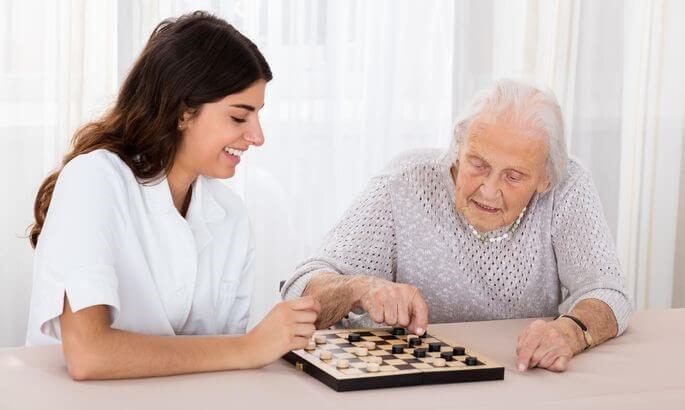
Tips for a caregiver when working with an older person
If a person over 80 thinks clearly and walks independently, this is a big plus. Dementia and broken bones can cause additional difficulties, so this should be avoided.
- Maintain the mobility of the elderly and his ability to self-care. A person needs to move, do exercises in the morning, walk, strengthen his muscles and bones.
- Elderly people may experience bruises and fractures due to falls. For prevention, you need to create a comfortable and safe home: remove disturbing furniture from passageways, level the floors. Walk only in the daytime in familiar places to avoid falling on the street due to poor vision. Provide a comfortable and safe toilet at night.
- To maintain sanity, offer the elderly mental and creative activities: reading books, solving crossword puzzles, knitting, drawing, board games, etc. Be sure to communicate with loved ones and friends.
- Ensure the safety of the elderly. Even if the caregiver lives with the elderly, he will not always be there. In moments of loneliness, the ward must be protected. Install a fire alarm in case a person forgets to turn off the stove, make sure that he always has a mobile phone at hand, etc.
Tips for the assistant himself
The daily work of caring for the elderly can become burdensome for a helper who no longer has enough energy and time to live his own life. Caregivers, like people in other social professions, naturally experience burnout over time, as their work requires a lot of energy.
Burnout can be recognized by the feelings experienced by the helper. It all starts with enthusiasm, fullness of strength and desire to help; over time, fatigue and irritation come, which flow into embitterment and bitterness. This is possible if most of the physical and mental strength, time and resources are spent on the ward, and the person himself has little left for his life. To prevent this, the assistant needs to follow these recommendations:
- Lead a healthy lifestyle. Get enough sleep, eat well, rest. Maintain your healthy physical condition.
- Have your own free time. To do this, distribute the time and responsibilities for caring for the ward. If you have a family, ask your relatives for help. If you are alone, connect social services - there are those that help inexpensively or for free.
- Do what you like in life. Read your favorite books, watch movies, chat with friends, indulge in hobbies, etc. This is an important emotional boost that a caregiver needs.
- If the assistant lives with the ward, he needs rest outside the home. Find time for walks and pastime outside the walls of common housing.
- Do not do for the ward what he himself can do. This will benefit both the retiree and the assistant himself. The ward feels his control and independence, which are so important for him especially in old age, and the assistant does not take on unnecessary burdens. While he can, let him do it himself.
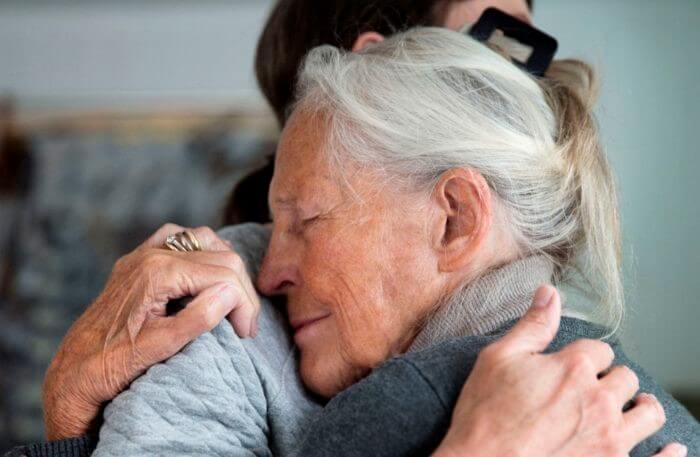
You need to see the person in a person. Due to routine work, caregivers may lose their perception of the elderly person under their care as a living person. Grandmother or grandfather lived a long life before this, now they are learning to live with their old age, which brings them weakness, illness, and deprivation. Negative changes in character are also provoked by old age, and not by personality. Many old people admit that inside they are completely different: their body is aging, but mentally they are young. If you try to look at an elderly person from the outside, taking into account his living conditions, a different understanding will come and, accordingly, a tolerant and sympathetic attitude.
The main point for the caregiver is to live his life, get pleasure and happiness from it. When an assistant manages to harmoniously combine his life and caring for the elderly, both he and the person under his care live better.
What you need to provide:
- A statement must be provided from both parties.
- Get a certificate from the employment center that the person is not registered there.
- It is necessary to provide insurance certificates, copies of the first and last pages of the work book, copies of the first pages of the ward's and caregiver's passports, and a copy of the registration pages.
There is no need for an elderly person to come in person; documents can also be provided by the person caring for him. If you are registering care for a disabled relative, then the procedure is the same as registering care for a pensioner. Social protection specialists review the received documents and in any case notify the applicants. A benefit is assigned within 10 days or a refusal is received within 5 days.






